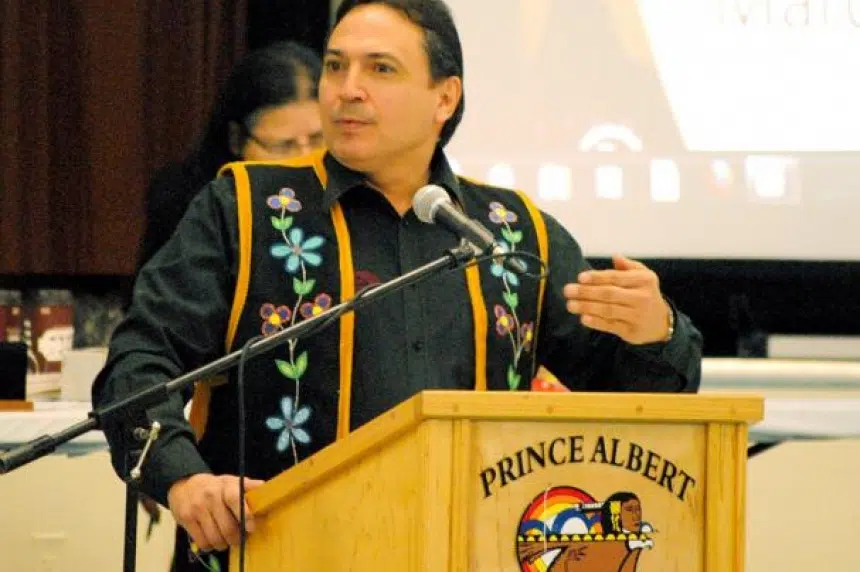Whether it’s Stephen Harper, Justin Trudeau, Thomas Mulcair or Elizabeth May, Assembly of First Nations Chief Perry Bellegarde says he’s happy and willing to work with either candidate who becomes prime minister.
“Some chiefs are saying don’t vote Conservative, some chiefs are saying, ‘Hey, I vote for Conservatives so you have to respect the positions,” Bellegarde said.
Leading up to what is now the longest election campaign in 142 years; Bellegarde said while chiefs are calling for change at the top, his focus is about getting First Nations voters to cast a ballot this fall.
“The AFN’s position is to encourage people to exercise that vote and make sure First Nations people do vote because our issues do matter.”
The main issue for Bellegarde is the gap between First Nations communities and the rest of Canada.
“According to the United Nations human development index Canada is rated sixth. But when you apply that to First Nations people we’re 63rd and that gap is what needs to be closed,” Bellegarde said. “Government’s need to start investing in education and training dealing with a backlog on housing, the high number of First Nation children in provincial care and the high number of First Nation people in jail.”
To enact change, Bellegarde said eligible aboriginal voters need to participate in the fall federal election and get voter turnout up from the dismal 45 per cent turnout in 2011. Bellegarde said First Nation voters can tip the scales in 51 federal riding across Canada, seven in Saskatchewan.
“If it stays the same at 45 per cent … we need to do a better job educating our people to get out because of the impact it could have on voting; 51 ridings that could make the difference between a minority and majority government,” he said.
As the election trail moves forward, Bellegarde hopes the federal parties make an inquiry into missing and murdered indigenous women an election issue, after the Harper government came out saying no to an inquiry.
“The Conservatives have been clear on their position on a call for a national inquiry, the Liberals say if they’re elected there will be one; the NDP says if they are elected there will be one,” he said.
Because of the Conservatives’ stance on an inquiry, Ken Coates, professor and historian at the University of Saskatchewan said Bellegarde may have an uphill battle if Harper is re-elected.
“If the Conservatives win again, he is going to have to mend some fences but back off and look at the Conservative record,” Coates said, referring to Harper’s movement on a Truth and Reconciliation commission and the record of former aboriginal affairs ministers in Jim Prentice and Chuck Strahl.
“He is doing what every national chief should do and that’s fight to the finish to make sure the government of Canada and people hold obligations to First Nation folks, he has the right to push for what legally is right for First Nations in Canada.”
Coates said Bellegarde will likely continue to be a great leader for First Nations and expects him to work diligently with a new aboriginal affairs minister after the Oct. 19 election.
fbiber@rawlco.com
Follow on Twitter: @notthebeebs











